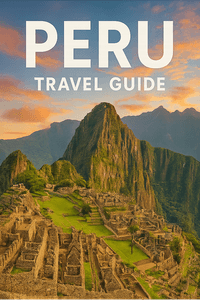Traveling to Peru, and specifically to the iconic Machu Picchu, offers a breathtaking experience that can also pose unique health considerations. One of the primary health concerns for travelers is altitude sickness, or acute mountain sickness (AMS), which can occur due to the high elevation of Cusco (around 3,400 meters or 11,200 feet) and Machu Picchu (approximately 2,430 meters or 7,970 feet). Symptoms may include headaches, nausea, and fatigue.
To minimize the risk of AMS, it is advisable to spend a few days acclimatizing in Cusco before embarking on your trek to Machu Picchu. Staying hydrated is crucial; drink plenty of water and consider herbal teas like coca tea, which is known for its potential to alleviate symptoms. Additionally, avoid alcohol and heavy meals during your initial days in high altitudes.
Physical fitness is another essential factor. While the Inca Trail and other treks to Machu Picchu vary in difficulty, maintaining a good level of fitness can enhance your trekking experience. Incorporating light exercises or hiking in your routine before your trip can be beneficial.
Travelers should also be prepared for varying weather conditions. The region can be humid and rainy, especially during the wet season from November to March. Carrying appropriate gear, such as waterproof jackets and sturdy hiking boots, will help you stay comfortable and safe.
In addition to physical health, travelers should be mindful of cultural practices and local customs, which can affect personal health. For instance, it’s recommended to try local foods gradually, allowing your digestive system to adjust to different ingredients.
Lastly, ensure you have adequate travel insurance that covers health issues and emergency evacuations, as some areas may have limited access to healthcare facilities. By taking these precautions and being aware of the health effects related to altitude and other factors, you can enjoy the wonders of Peru and Machu Picchu with confidence.






